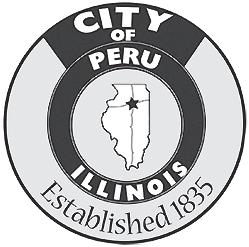The benefits of breast cancer support groups
Millions of women across the globe are diagnosed with breast cancer each year. According to the World Cancer Research Fund International, breast cancer is the most commonly diagnosed cancer in women each year, with nearly three million new cases confirmed every 12 months.
Those figures are undoubtedly daunting, but they also tell a different story of perseverance and survival that can comfort women who have recently received a breast cancer diagnosis. According to the WCRF, in 2020 there were 7.8 million women worldwide who had lived for at least five years after their breast cancer diagnosis. Indeed, survival rates for breast cancer have improved dramatically in recent decades. Women often overcome the disease on account of their own personal resilience, but also by drawing on the experiences of others for inspiration and strength, namely through support groups. Women recently diagnosed with breast cancer may be surprised to learn just how beneficial

support groups can be.
• Support groups can help women overcome the mental challenges of a diagnosis. A 2019 study published in the journal Frontiers in Psychology examined the effectiveness of support groups for women with breast cancer and their caregivers. The study found that participation in a support

group can help to reduce feelings of depression, anxiety and more while also making women more capable of adapting to their situation.
• Support group participation during treatment can have a lasting effect. A longitudinal study published in the journal Psychooncology in 2014 found that social support of breast
cancer patients was positively predictive of better physical and mental health-related quality of life at threeyear follow-up appointments for breast cancer patients. That means the benefits of joining a breast cancer support group are not only evident during treatment, but endure long after treatment as well.
• Support groups can be informative on multiple levels. Breastcancer.org notes that participation in a support group can teach women diagnosed with the disease how to become better advocates for themselves. That’s a notable benefit, as women confronting the mental health side effects of cancer treatment, including depression and anxiety, may feel as though they lack agency. In addition, by listening to others in a support group, women can identify new resources for understanding their disease and treatment plan.
Support groups can be invaluable for women diagnosed with breast cancer. Women can speak with their cancer care team to learn about local support groups. TF24A322














PAINT THE VALLEY PINK
Did you know?
The American Cancer Society reports that approximately 30 percent of postmenopausal breast cancer cases can be attributed to potentially modifiable risk factors. That finding, cited in the organization’s “Breast Cancer: Facts & Figures, 2022-2024” report, means as many as three in 10 breast cancer diagnoses in postmenopausal women may have been attributable to variables within patients’ control. The ACS notes such variables may have included body weight, alcohol consumption and physical activity levels. The same report also notes that certain modifiable risk factors accumulate over the course of a woman’s life, meaning both postmenopausal women and younger women could potentially lower their risk for breast cancer by making a concerted effort to achieve and maintain a healthy body weight, reduce alcohol consumption and embrace a physically active lifestyle. TF24A316



Did you know?
As women enter perimenopause and begin the transition that will ultimately lead to menopause, many doctors prescribe hormone pills to help regulate menstruation cycles and ease certain symptoms. Compared to regular birth control pills that contain 30 to 50 micrograms of estrogen, a doctor may suggest a low-dose pill that contains between 10 and 35 micrograms of estrogen. These levels can be increased as needed. WebMD says that, in addition to preventing pregnancy, which can still occur in perimenopause, low dose pills often regulate heavy or irregular menstrual periods and may offer protection from ovarian and uterine cancers. The pills also may prevent bone loss, which leads to osteoporosis. It’s important to note that contraceptives come with an elevated risk for breast cancer and blood clots, particularly for those with a history of heart disease and breast cancer. So doctors should be consulted about the pros and cons and women should initiate an open and honest dialogue with their physicians to avoid any complications. TF249286










PAINT THE VALLEY PINK

Debunking certain myths surrounding breast cancer
Events like National Breast Cancer Awareness Month and the Susan G. Komen® MORE THAN PINK Walk® have been integral to raising awareness about the most commonly diagnosed cancer in women across the globe. Though such campaigns and events have helped many women better understand breast cancer and their own risk for the disease, certain myths surrounding breast cancer persist. Such myths are not harmless and can, in fact, lead to unsafe outcomes that jeopardize women’s health.
Questions about breast cancer should always be directed to a physician. Though physicians may not have all the answers, they remain useful allies in the fight against a disease that the World Cancer Research Fund International reports will be discovered in roughly three million women this year. As women seek more knowledge of breast cancer, it can be just as important to recognize some common myths surrounding the disease.
MYTH: MRIs are more effective than mammograms.
The National Breast Cancer Coalition notes that no evidence exists to support the assertion that a magnetic resonance imaging exam is a more effective screening test for breast cancer than a mammogram. The NBCC acknowledges that an MRI can be an effective diagnostic tool when doctors suspect something is wrong. However, the NBCC advises against using MRI to screen for breast cancer since it is more likely to yield a false-positive result than a mammogram. Indeed, the National Breast Cancer Foundation identifies mammography as the gold standard for the early detection of breast cancer.
MYTH: Breast size and breast cancer risk are connected.
This myth typically suggests breast cancer is more common in women with large breasts. The NBCF notes there is no connection between breast size and breast cancer risk. Breast density, not size, may be associated with a greater risk for breast cancer. The Mayo Clinic notes dense breast tissue refers to the ways breast tissue appears on a mammogram. Women with dense breasts, which the National Cancer Institute notes affects roughly half of all women over age 40, are at higher risk for breast cancer because the dense tissue makes screening for the disease more difficult. But breast size and breast density are not one and the same.
MYTH: Most breast cancer patients have a family history of the disease.
The NBCC notes that roughly 15 to 20 percent of women diagnosed with breast cancer report a family history of the disease. Assuming only those with a family history are vulnerable to breast cancer gives women with no such background a false sense of security, which may discourage them from taking measures to lower their risk.
MYTH: All breast lumps are cancerous.
The NBCF indicates only a small percentage of breast lumps end up being cancerous. Lumps should never be ignored, and should be reported to a physician immediately. But it’s important to avoid jumping to conclusions after finding a breast lump. A clinical breast exam can determine what’s behind the lump, and women who discover a lump should remain calm until such an exam is conducted.
These are just some of the many myths circulating about breast cancer. More information about the disease can be found at nationalbreastcancer.org. TF24A315





MAMMOGRAMS SAVE LIVES
Could one of them be yours?
Getting screened has never been easier!
OSF HealthCare offers easy, convenient online scheduling for screening mammograms.
Mammograms are the single most effective tool in the early detection of breast cancer and are proven to save lives. With early detection, the five-year survival rate is nearly 100%. Talk to your doctor about breast cancer screening.
Visit osfhealthcare.org/breast-screening to schedule your screening mammogram today.











